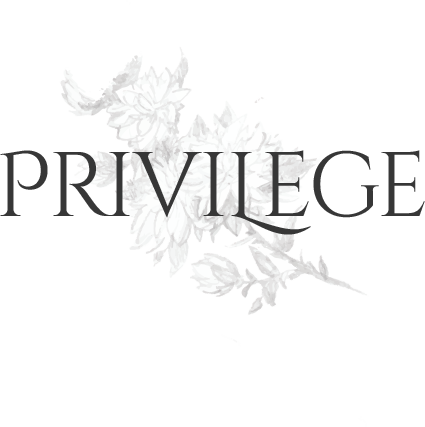
To what extent does living a life resemble writing a book?
How’s that for a tiny, precise, yes-or-no question on a Saturday morning? Booyah.
(tl;dr layers+iterations, drafting+editing. a distillation a cover blurb)
The other week I was sitting with a group of people who have deep experience in loss, and life, and one of them said she has learned to think in terms of new life chapters. I heard her with that certain ping inspired by valuable new ideas. “Oh yes,” I thought, “That’s what I’m doing.” I tend to resist facile similes, clichés, platitudes. But having spent much of the past five years writing two books, the process of chaptering, if we can call it that, has many implications for me. It’s more complicated than just setting a page break and typing the next number.
To whit,
One: pages/time
Book chapters are in part about the plain old number of pages. You want a chapter, in commercial fiction, to extend over something like 10-20pp. A chunk readable in bed before you fall asleep, maybe. In writing a first draft, that constraint can be helpful; an implicit framework. In life, I heard once that every 7 years our cells change over. I’m sure that’s wrong, but we do see our lives often in terms of decades. I’m in my 60s. Or a qualitative timeframe; infancy, childhood, adolescence, young adult, middle age, old, elder. Quite simple.
Two: scenes/place
Funny thing about writing fiction, you also need scenes. Scenes happen in places. Chapters, then, will consist of a scene or two, in a place, and perhaps a few more contemplative narrative passages in wordspace. Lives happen in places. We could see our life chapters in terms of physically where we lived, where we worked, where we traveled. Simple-ish.
Three: stakes, obstacles/life tasks
But pages and scenes are mechanical devices. Nobody reads solely to complete pages, or get a certain number of scenes under their belt. Nobody writes that way either. We are all struggling with meaning, with conflict, with release. In every chapter of a book, we’re always going to ask, “What matters?” And few people experience life just one scene, one foot in front of the next. We are human beings and we have goals, aspirations, ambitions, fears, and we will meet obstacles. We surely will.
Four: the question of arcs and explosions
Which brings us to another fictional construct. Book chapters are important, we want them to exist as satisfying entities in their own rights, but they need to follow an order and they need to advance us. Hence the idea of an arc.
In fiction, authors choose where to explode, where to recuperate, where to redeem, and so they organize their chapters. In perhaps the most obvious statement I’ve ever made here, in real life we do not always choose the timing of our life events. Big happenings may come upon us. We can’t be guaranteed that Chapter 18 of 22 will hold The Big Revelation.
Perhaps less obviously, but possibly related, I notice that we do not know what makes a chapter in our first draft, as it occurs. Not for books, not for life. At least I didn’t. And the joy, at least for me, of later life, is that we carry all the stories of our early days with us and we can revise later for full meaning. Not the events themselves, per se. But as we know, everyone will experience an event differently and therefore it’s perfectly legitimate to tease apart our personal narrative and revisit, repair or recast it.
Five: editing
We edit books. The 20th chapter may tell us what the 5th chapter actually meant. The 21st chapter may be driven by what we forgot to write in chapters 14-16. Same is possible, as far as I can tell, for this basic peculiar process of being born, alive, and eventually not-alive. We aren’t stuck with our past because we carry it with us.
(an apology is a real-time edit an open mind is eraser and pencil both)
Epilogue
If I were to list the first four of my many privileges (on top of being white) they might go like this:
- Descended from generations who were able to avoid trauma encoded in their genetics
- Was well-fed and cared for myself by someone interested in my health with resources
- Educated as well as humanly possible in my era, with preternatural access to beauty
- Lived in a place with wonderful weather and open minds
These four have led, directly or indirectly, to many joys. My garden. My children. My travels. My marriage. My aesthetics. This blog. My belief in service to others.
Now, with enormous gratitude and crossed fingers, I’ve been given some time to retell my own story to myself. After several years of serial and compounding losses, I’m working on a new chapter at the same time as editing those I’ve already written. Closing out threads. Adding tiny grace notes. And sometimes ignoring the bullshit. Yes, I just said bullshit.
My heart is rising and with that same heart I wish something of the sort for you. Have a good weekend.

15 Responses
“Tease apart our personal narrative and revisit, repair or recast it…” — so meaningful and so difficult. I love that things like this cross your mind, Lisa, and your blog is like a little oasis for me because I so wish that they crossed the minds of more people. I also wish the teasing apart were easier for my own mind, but I try very hard. Also… bullshit is such a common hazard in life that it’s vital to simply call it what it is so that one can easily ignore it. :)
Have a beautiful weekend, and may your heart continue to rise. <3 Thank you for such insightful and thoughtful posts!
Jess, thank you for reading and commenting even when I’m at my most abstruse:). Much appreciated. In the end, I’ve come believe it’s mostly about the trying.
Interesting, cogent post. May I throw a couple of other elements into your discussion?
1) Plot – imposed or organic? (and how to determine which)
2) Sense of finitude – a book has a beginning and an end (so does Life, but those elements can seem out of our personal control, whereas the novelist appears to have control over both)
Just thoughts…
Absolutely. In writing, as in life, I always subordinate plot per se to the “beats,” AKA the vibe. But of course I should include it in any reasonable essay along these lines;)
Finitude, ah, starting a book is so easy and ending it so very hard xox
Writing can be torturous. If the end result brings joy to the writer and reader, then it is all worthwhile…maybe?
It surely can be torturous;)
One of your most remarkable posts, in which you delineate strands of privilege. This is helpful and inspiring, and I will use your four points as a model for my own personal statement — stay tuned! I just completed required a “JEDI” (Justice Diversity Inclusion) training. One of so many revelations, perhaps obvious but worth re-learning in whatever chapter we inhabit, is that everyone deserves privilege. Not privilege in the materialistic sense but the privilege of love, joy, beauty — the privilege for instance bestowed by the loving caregiver who made sure you were fed, warm, and exposed to a great education and also beauty. And now, in this chapter, another great privilege reveals itself: the ability to be that person in another’s life, and in many lives — even if life is always changing and is also, sometimes, a mess. Thank you. Please keep it coming. ❤️ and PS the site looks great!!
Thank you, Sarah. I look forward to your person statement. I’m sure it will be executed with your customary panache:). I am so glad you did that training, can only be good for everyone.
Enjoyed your post! And the comments as well.
Thank you! And, as always, thank you to the wonderful commenters!
Oooo chapters. Yes, I think it’s a keeper. Also – you are sounding more buoyant about your writing so I have decided that means perhaps you found an editor or even a publisher?! Happy belated Summer Solstice
Thank you:). And no, no editor or publisher yet, but, will sent out my first queries for the romance the last two weeks of July. Hooray!
I love the idea of revising our understanding of early events. I do believe that this is ongoing for many of us. Our understanding of long ago events from just five years ago may be revised again now–and even more in the future.
Yes. It never has to stop. We have our whole lives all the time, and our whole lives grow larger as we grow older.
1. Love this
2. We didn’t get to talk about the part about sitting with people who have experienced loss and I do want to hear about this
3. The concept of chaptering is intriguing. As we embark on a new chapter, who said I was ready to leave the last one? ( which we have no control over)
4. I love what Sarah wrote
5. Admiration for completing 2 books no matter the outcome
Comments are closed.